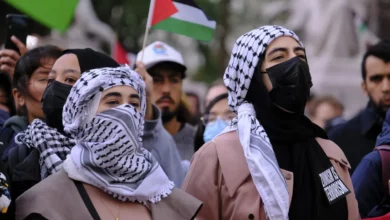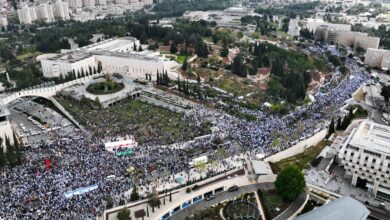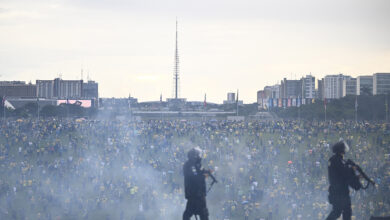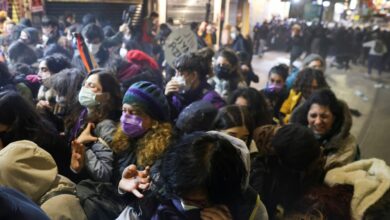Islamist presidential hopeful Hazem Abu Ismail has called for a massive protest next Friday under the slogan "One Demand" to pressure Egypt's de facto military rulers to hold the presidential elections on 1 April 2012.
Abu Ismail held a seminar on Saturday evening at a mosque in Cairo's Dokki neighborhood, in which he called on all political forces to participate in the protest
"Staring from today until next Friday, leaflets should be distributed in cafes, and to pedestrians in the streets. All means of communication should be used to call on the masses to participate and make it a huge protest," said Abu Ismail.
"Egypt is at a loss and we must save her by removing ambiguity from the management of the military council, which imposes itself on us and plans to stay in power until judgement day," he added.
"We are fully aware of the military council's schemes… We will regret it if we ignore this million-strong demonstration, so I will go to Tahrir Square, even on my own," he said.
Directing his words to the military junta, he said: "Your place is on the borders, and not in politics. All constitutional articles ban you from practicing politics," adding that the military promised to stay in power for six months, a period of time that has now passed.
"Carry out a public referendum if you want to know people's opinion of you," said Abu Ismail.
He added: "We must all move to Tahrir Square, since the military council has turned the transitional period into a period of stabilizing its rule, ignored the demands of 90 million people and considered them worthless."
Abu Ismail said there would be no backtracking on the million-strong demonstration unless the council specifies a date for the presidential election, because the continuation of military rule would lead the country to "destruction."
He accused the military junta of being responsible for the increase in prices of consumer goods, the deterioration of tourism, the aggravation of sectarian tensions and low production.
Translated from the Arabic Edition




